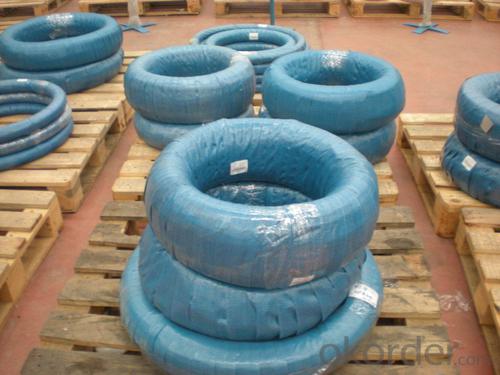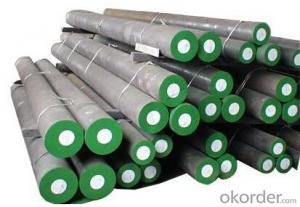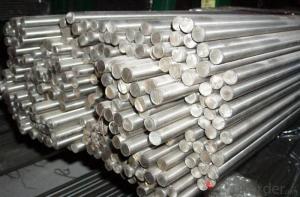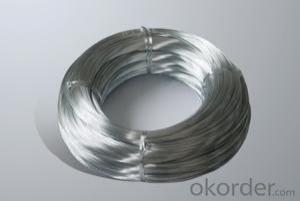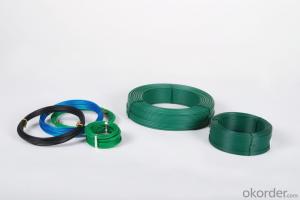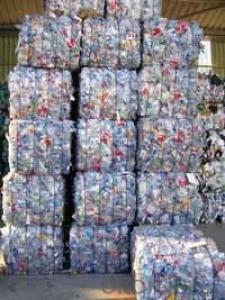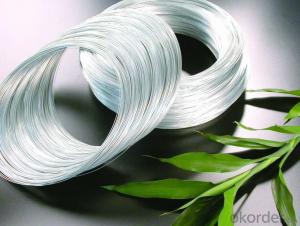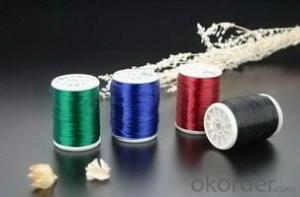PIANO WIRE
- Loading Port:
- China Main Port
- Payment Terms:
- TT OR LC
- Min Order Qty:
- -
- Supply Capability:
- -
OKorder Service Pledge
Quality Product, Order Online Tracking, Timely Delivery
OKorder Financial Service
Credit Rating, Credit Services, Credit Purchasing
You Might Also Like
Steel grade should be 82C,65Mn,70#,72B,M10etc.Size from 0.4-7.0mm.coil weight can reach 500-1000KGS.we can produce piano wire according to JIS3522,we import material from japan,and bought Janpanese machine.we can make it in high quality,meanwhile good service for you.
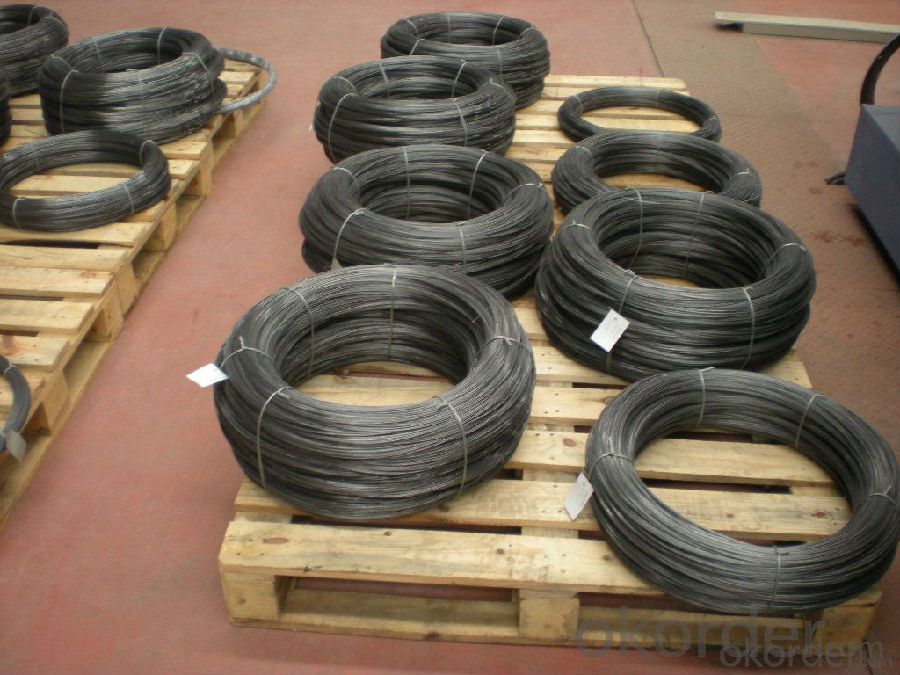
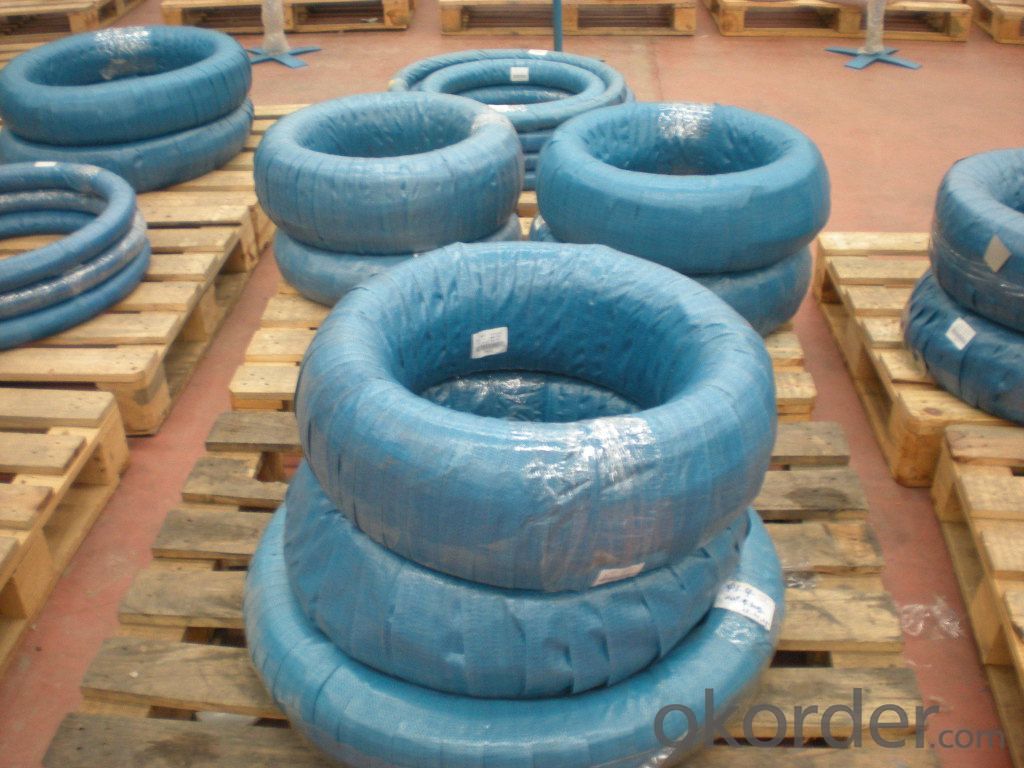
- Q: How does special steel perform in high-pressure environments?
- Special steel performs exceptionally well in high-pressure environments due to its high tensile strength, excellent corrosion resistance, and ability to withstand extreme temperatures. Its superior mechanical properties make it highly suitable for applications such as oil and gas pipelines, pressure vessels, and offshore drilling equipment, where it can effectively handle the intense pressures and maintain structural integrity even under harsh conditions.
- Q: How is special steel used in the production of bearings?
- Special steel is used in the production of bearings due to its high strength, durability, and resistance to wear and corrosion. The use of special steel ensures that bearings can withstand heavy loads, high speeds, and harsh operating conditions, providing smooth and reliable performance. The steel used in bearings is carefully engineered to have specific properties, such as hardness and toughness, which are essential for their effective functioning.
- Q: How does special steel perform in high-vibration environments?
- Special steel is specifically designed to withstand high-vibration environments. Its unique composition and metallurgical properties make it highly resistant to fatigue, cracking, and deformation caused by vibrations. Additionally, special steel exhibits superior damping capacity, effectively absorbing and dissipating vibrations, thus reducing the risk of structural damage or failure in high-vibration environments.
- Q: What are the different stamping grades of special steel?
- There are several different stamping grades of special steel used in various industries. Some of the common stamping grades include: 1. Low Carbon Steel: This grade of special steel is known for its excellent formability and weldability. It is often used in applications that require deep drawing or complex bending. Low carbon steel is also cost-effective and widely available, making it a popular choice in stamping processes. 2. High Strength Low Alloy (HSLA) Steel: HSLA steel is a type of special steel that contains small amounts of alloying elements such as copper, nickel, or chromium. This grade offers higher strength and better toughness compared to low carbon steel. It is commonly used in automotive components, structural parts, and other applications that require strength and durability. 3. Stainless Steel: Stainless steel is a corrosion-resistant special steel that contains a minimum of 10.5% chromium. It is commonly used in stamping applications that demand resistance to rust, staining, and corrosion. Stainless steel comes in various grades, such as 304, 316, and 430, each offering different levels of corrosion resistance and mechanical properties. 4. Tool Steel: Tool steel is a high-quality special steel designed for applications that require resistance to wear, deformation, and high temperatures. It is commonly used in stamping dies, cutting tools, and other applications where hardness and toughness are crucial. Tool steel grades include D2, A2, O1, and M2, among others. 5. Electrical Steel: Electrical steel, also known as silicon steel, is a special grade that has high magnetic permeability and low electrical conductivity. It is used in stamping applications that require efficient magnetic properties, such as transformers, motors, and generators. These are just a few examples of stamping grades of special steel. Each grade is chosen based on the specific requirements of the application, such as strength, corrosion resistance, magnetic properties, or formability.
- Q: What are the main characteristics of alloy steel?
- The main characteristics of alloy steel include high strength, hardness, and durability due to the presence of different alloying elements such as manganese, nickel, chromium, and molybdenum. It also exhibits good resistance to corrosion, wear, and heat, making it suitable for various applications in industries such as automotive, aerospace, and construction. Additionally, alloy steel offers excellent machinability and weldability, allowing for ease of fabrication and customization.
- Q: What are the properties of wear-resistant tool steel?
- Wear-resistant tool steel typically possesses high hardness and excellent toughness, allowing it to withstand abrasion, impact, and deformation. It also has good heat resistance, retaining its strength and hardness at elevated temperatures. Additionally, wear-resistant tool steel exhibits good dimensional stability and corrosion resistance, making it a durable and long-lasting material for cutting, forming, and shaping tools.
- Q: What are the different methods of joining special steel components?
- Some of the different methods of joining special steel components include welding, brazing, soldering, and mechanical fastening.
- Q: What are the different welding methods used for special steel?
- There are several welding methods that can be used for special steel, depending on the specific requirements of the project. Some of the commonly used welding methods for special steel include: 1. Gas Metal Arc Welding (GMAW): Also known as MIG welding, this method uses a consumable electrode and a shielding gas to protect the weld from atmospheric contamination. GMAW is ideal for welding special steel as it provides high-quality, clean welds with minimal spatter. 2. Gas Tungsten Arc Welding (GTAW): Also known as TIG welding, this method uses a non-consumable tungsten electrode and a shielding gas to protect the weld. GTAW is often used for special steel as it allows for precise control over the welding process, resulting in high-quality, defect-free welds. 3. Shielded Metal Arc Welding (SMAW): Also known as stick welding, this method uses a consumable electrode coated in flux to protect the weld. SMAW is commonly used for special steel as it is a versatile and portable method that can be used in various positions and environments. 4. Flux-cored Arc Welding (FCAW): This method uses a tubular electrode filled with flux to protect the weld. FCAW is often used for special steel as it provides high deposition rates and deep penetration, making it suitable for thicker materials. 5. Submerged Arc Welding (SAW): This method uses a continuously fed wire electrode and a granular flux that is applied around the weld. SAW is commonly used for special steel as it can produce high-quality, high-integrity welds in thick sections. It is important to note that the selection of the appropriate welding method for special steel depends on various factors such as the type and thickness of the steel, the desired weld quality, and the specific application requirements. Therefore, it is recommended to consult with welding professionals or engineers to determine the most suitable method for a particular project involving special steel.
- Q: How does special steel contribute to the mining machinery industry?
- The mining machinery industry relies heavily on special steel, which provides exceptional strength, durability, and resistance to wear and corrosion. This specific type of steel is engineered to withstand the harsh conditions typically encountered in mining operations. In the mining machinery industry, equipment such as drills, excavators, loaders, crushers, and conveyor systems face extreme stress, heavy loads, and abrasive materials. Various parts of these machines, including buckets, tracks, cutting edges, gears, and hydraulic components, incorporate special steel components. The high strength and toughness of special steel ensure that mining machinery can endure the immense forces and impacts involved in mineral excavation, hauling, and processing. This durability extends the lifespan of the equipment, reducing the need for frequent replacements and minimizing downtime, resulting in cost savings for mining companies. Special steel's resistance to wear and corrosion is crucial in the mining industry. The presence of abrasive materials and corrosive substances in the mining environment can cause rapid deterioration of machinery components. However, special steel alloys are designed to resist wear and corrosion, enhancing the longevity and performance of mining machinery. Additionally, special steel allows mining machinery to operate efficiently and effectively. Its high strength-to-weight ratio allows for the construction of lightweight yet robust equipment, improving mobility and productivity in mining operations. The use of special steel also enables the design of complex components with intricate shapes, ensuring optimal functionality and performance. Overall, special steel is an essential material in the mining machinery industry. Its exceptional strength, durability, resistance to wear and corrosion, and ability to enhance efficiency make it a vital component in the design and construction of mining equipment. By incorporating special steel, mining machinery can withstand the challenging conditions and heavy-duty tasks involved in mining operations, ultimately contributing to increased productivity, reduced costs, and improved safety in the industry.
- Q: What is the significance of phosphorus in special steel?
- Phosphorus plays a significant role in the production of special steel due to its various beneficial properties. Firstly, phosphorus acts as a deoxidizer, helping to remove impurities such as oxygen from the steel during the manufacturing process. This improves the overall quality and purity of the steel, making it more resistant to corrosion and enhancing its mechanical properties. Moreover, phosphorus can increase the strength and hardness of the steel, making it suitable for applications that require high durability and wear resistance. It also helps in improving the machinability of the steel, allowing for easier shaping and processing. Additionally, phosphorus enhances the steel's ability to retain its strength at elevated temperatures, making it suitable for applications in high-temperature environments, such as power plants or aerospace industries. However, while phosphorus offers these advantages, it is important to control its concentration within certain limits, as excessive levels can lead to detrimental effects. High phosphorus content can result in brittleness, reduced toughness, and decreased weldability of the steel. Therefore, careful consideration is necessary to balance the beneficial effects of phosphorus with its potential drawbacks. In summary, the significance of phosphorus in special steel lies in its ability to improve the quality, purity, strength, hardness, machinability, and high-temperature performance of the steel. By controlling the phosphorus content within appropriate limits, manufacturers can produce special steel with enhanced properties, meeting the specific requirements of various industrial applications.
Send your message to us
PIANO WIRE
- Loading Port:
- China Main Port
- Payment Terms:
- TT OR LC
- Min Order Qty:
- -
- Supply Capability:
- -
OKorder Service Pledge
Quality Product, Order Online Tracking, Timely Delivery
OKorder Financial Service
Credit Rating, Credit Services, Credit Purchasing
Similar products
Hot products
Hot Searches
Related keywords


